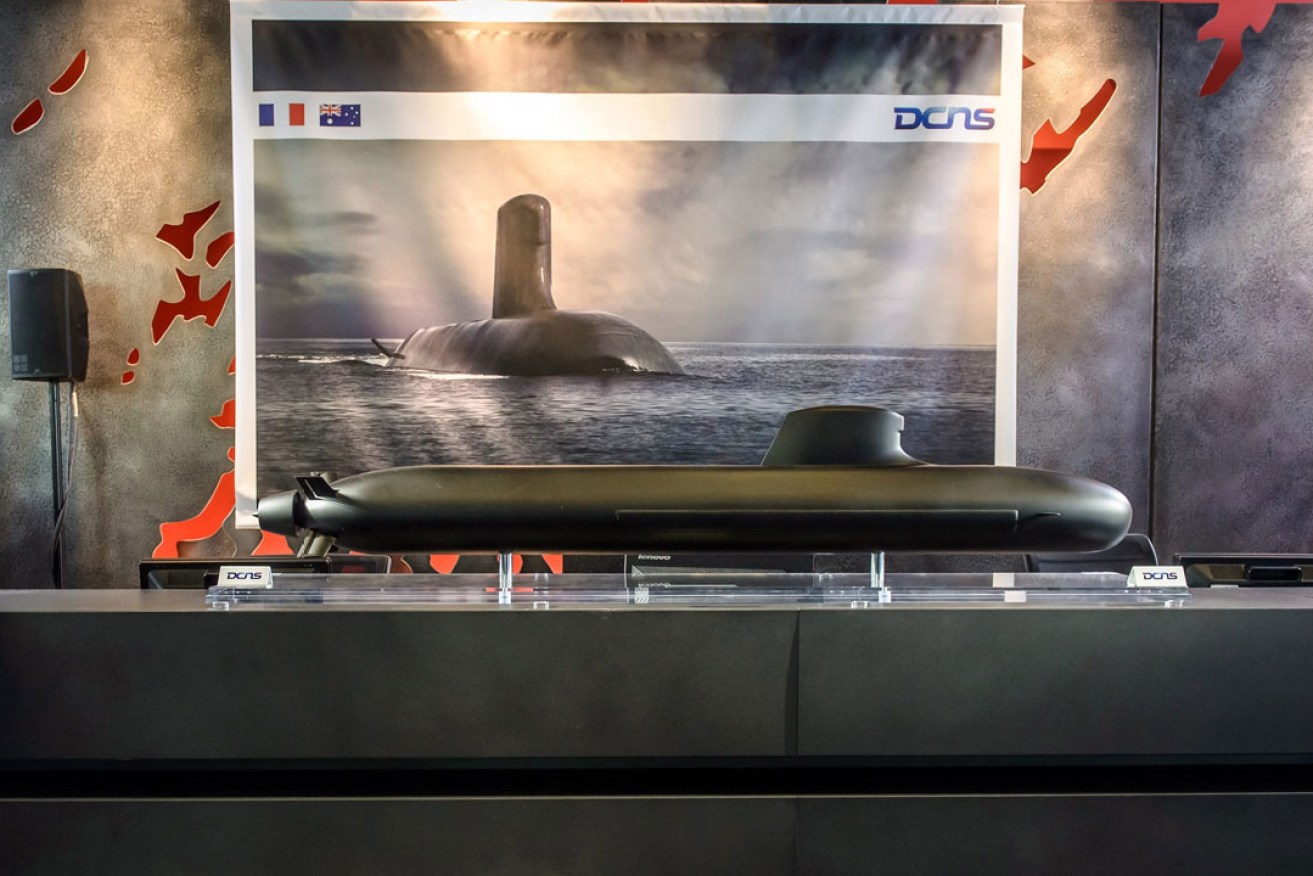French politics a risk for Australia’s submarines project
An uncertain political landscape in France could pose a risk to Australia’s French-designed submarine fleet project.

A mock-up of the Shortfin Barracuda submarine, with a fleet of 12 to be built in Adelaide. Photo: EPA
The federal joint treaties committee is examining the submarine cooperation agreement between France and Australia at a hearing in Canberra today.
Government-owned French shipbuilder DCNS won the contract to design Australia’s 12 new submarines, which will be built in Adelaide.
The treaty has an out clause of two years notice if France or Australia decide to withdraw, the hearing was told.
Australian Strategic Policy Institute defence and strategy program director Andrew Davies, who appeared in a private capacity, noted France had a much more nationalised approach to defence industry compared to Australia.
“We should not convince ourselves that sharing submarine technology with Australia is entirely an act of altruism towards a strategic partner,” Davies said.
“We should keep our eyes open and beware of the economic imperative at work.”
The first round of voting for the French presidential election is in late April and far right candidate Marine Le Pen has strong support.
Asked about growing nationalism and protectionist sentiment in Europe and how that might affect the submarine agreement, Davies said a potential French exit from the European Union might change the landscape.
“Another potential future is a swing hard to the Left,” he said citing the example of the Vietnam War when army weapons systems were supplied by Sweden and the government opposed the war and refused resupply.
The first steel for the submarines is expected to be cut by 2022 and the first vessels will enter service in the early 2030s.
Davies argued the treaty between Australia and France was necessary but needed to be part of a three-way arrangement with the US, which will supply the combat systems through Lockheed Martin.
Asked how another intellectual property disaster – like that involving Swedish firm Kockums which designed the problem-plagued Collins submarines – could be avoided, Davies said Australia had to behave properly too.
He pointed to Australia’s unilateral decision to ship cracked Collins propellers to the US for analysis and advice in the late 1990s and early 2000s, and the legal action that ensued.
“If we are going seek that sort of advice from the United States in the future… we need to be absolutely clear with our French partners that, that is what we are going to be doing,” he said.
– AAP




